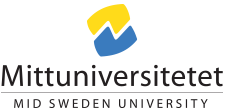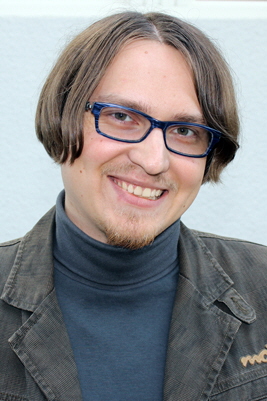Elijs Dima is a PhD-Student within the research group Realistic 3D. He will focus his work at the 3D capture Systems.
What is your background?
5 years right here at Mid Sweden University, going through the computer engineering programmes. In those, mainly focusing on varied software development and minor self-chosen projects (small scopes, ofc, to fit with programme plans). I suppose primary focus might be a split between Internet-oriented technologies and smartphone applications. On my own, I’ve also done some 3D modeling for games as a hobby – though finding the time to do it now might be a tad difficult.
What is your area of interest?
Regarding the project – 3D capture systems, and the setup/maintenance/construction of all that entails. At a larger level, I’m hedging my bets on 3D content becoming more relevant and important due to (imminent) advances in VR and especially AR – there is a lot of overlap among these fields, and I’m interested to see how they develop in the near future.
What is it that you are going to investigate in your Ph.D?
This is, of course, expected to change and adjust along with the project progress and goals. At this point, I’d feel safe in stating that it will very likely involve making various capture units cooperate well with each other, and push the right kind of data along the right kind of channels in the right kind of way. Whether that target remains the same or expands, we’ll see. If, for some weird reason, in 3-4 years’ time I end up working on AI-controlled augmented mice swarms colonizing Mars, then hey, I’ll take it.
Why did you choose Sweden and Mid Sweden University?
That decision goes back a long, long way – we’re talking of 5 years, after all. Initial reason for choosing Sweden was that it seemed like one of a very limited set of locations where I’d be happy to live/work/study in. Mid Sweden University was the preferred choice due to the university’s size (more scope for personal interactions) and location (not in a metropolis). Since then, the positive aspects have largely been dominant – good staff being a key factor here -, so an opportunity to pursue research in this environment seemed like a pretty good deal all round.

